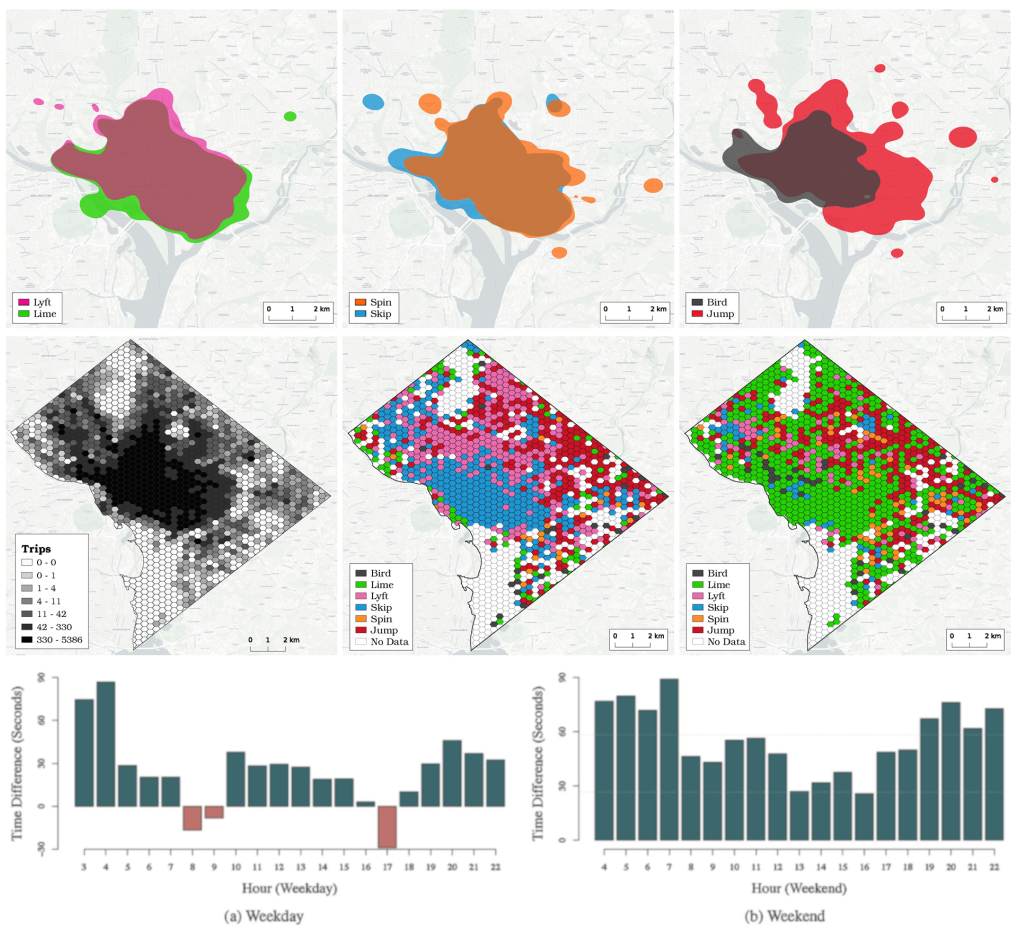We are happy to announce the publication of a new manuscript titled Urban mobility in the sharing economy: A spatiotemporal comparison of shared mobility services in the journal Computers, Environment and Urban Systems. The paper compares different e-scooter services in Washington, D.C. along with ride-hailing data from the Uber platform. The abstract is below.
The United States is currently in the midst of a micro-mobility revolution of sorts. Almost overnight, U.S. cities have been inundated with short-term rental scooters owned and operated by start-up companies promising a disruption to the urban transportation status-quo. These scooter-share services are presented as a dockless alternative to traditionally government-funded, docking station-based bike-sharing programs. Given the rapid rise of electric scooter companies, and how little is known about their operations, there is pressing public interest in understanding the impact of these transportation-sharing platforms. By exploring the nuanced spatial and temporal activity patterns of each of these platforms, this research identifies differences and similarities between dockless e-scooters and existing bike-sharing services. The findings from this research contribute to our understanding of urban transportation behavior and differences within mobility platforms.

